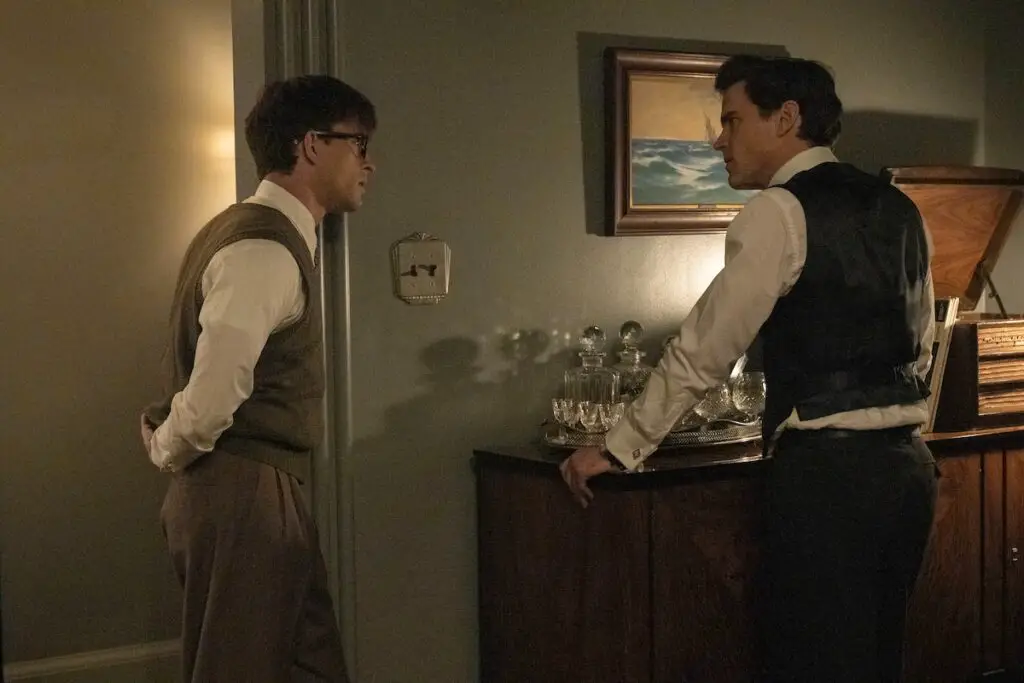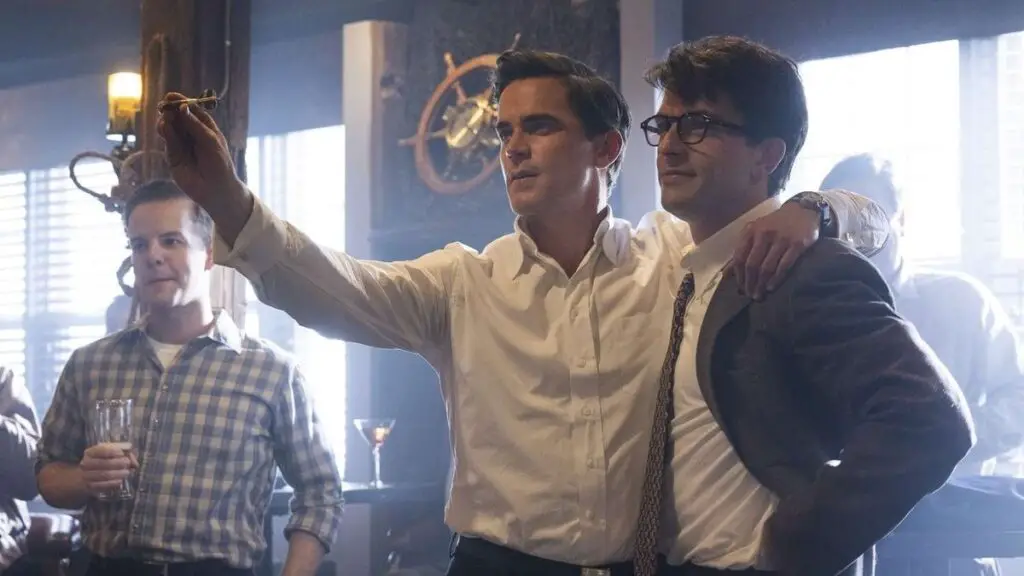In the heart of the 1950s, a time where the very essence of personal freedom was under scrutiny, Showtime’s latest miniseries “Fellow Travelers” emerges as a poignant narrative of love, identity, and resilience. Based on Thomas Mallon’s acclaimed novel, the series introduces us to Hawkins “Hawk” Fuller and Tim Laughlin, two men whose lives intertwine during the peak of McCarthyism—a period marked by intense anti-communist sentiment in the United States.
Fuller, portrayed by Matt Bomer, is a charismatic war hero climbing the ranks at the State Department, a man of many secrets who navigates a clandestine existence amid a society that shuns his true self. Jonathan Bailey’s Tim Laughlin, on the other hand, is a man of faith, whose zeal and innocence clash with the hidden realities of the world he steps into. Their affair, a beacon of light in a time of darkness, is a testament to the enduring spirit of love against all odds.
The narrative doesn’t shy away from the socio-political intricacies of the era. It intricately weaves personal struggles with public affairs, like the televised Army-McCarthy hearings, where personal vendettas fuel a national witch-hunt, threatening to consume all in its path—including our protagonists who navigate these treacherous waters while guarding their own secrets.
Spanning Decades, a Love Story Reflects the Times

“Fellow Travelers” is not just a love story—it’s a historical canvas that stretches across four tumultuous decades in American history. From the conservative 1950s to the transformative 1980s, the series embarks on a time-traveling expedition that explores the evolution of societal norms and the personal growth of its characters. This ambitious storytelling is achieved through a split timeline, which allows viewers to witness the long-term effects of the characters’ choices and the changing times on their lives and relationship.
The show’s third episode, “Hit Me,” encapsulates the complexity of their journey. A seemingly innocent road trip takes a sinister turn, revealing the dualities of Hawk’s character and the naivety of Laughlin. It’s a powerful illustration of the personal being political, as their private battles mirror the public ones—highlighting issues such as racial discrimination and the machinations of political power.
Showtime has meticulously planned the release of “Fellow Travelers,” offering a weekly dose of this gripping narrative. With eight episodes in total, the series promises a deep dive into an era and a relationship seldom explored with such depth on television. Viewers are encouraged to immerse themselves in every chapter of this saga to fully appreciate the breadth of storytelling that “Fellow Travelers” offers.


